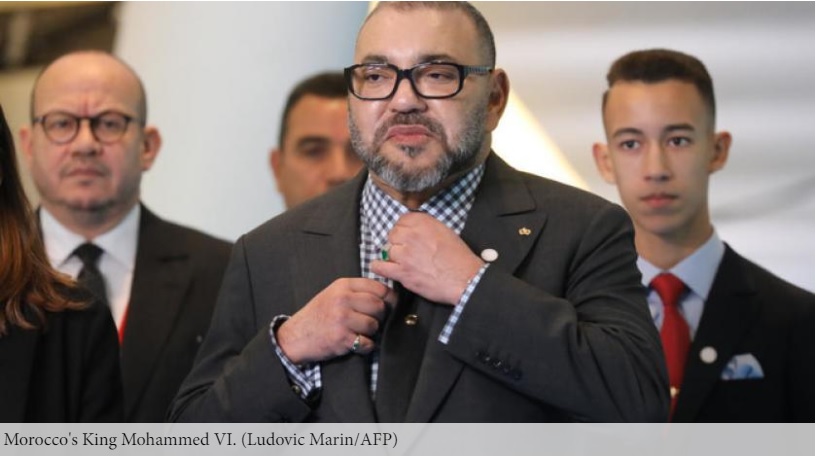Eurasia Review
Geopolitical Monitor
By Zak Rose
 Egypt
Egypt
In the aftermath of the Egyptian revolution, the world will be watching very keenly to see what character the new government adopts. Recent trends suggest that Islamism, as opposed to secularism, is preferred by the majority in Egypt. Presently, nominally-Islamist Egyptian leaders are making a concerted effort to curry favour among secularists by moderating their views, but as their position stabilizes, a more aggressively Islamic government may form, which could complicate relations with Israel and cause significant unease throughout the United States and Western Europe.
Syria
As rebel forces in Syria have gained and held ever-growing swaths of territory in their struggle against the Assad regime, government’s retaliations have become increasingly intense. Eyewitness reports from escaped refugees suggest an aggressive terror campaign on the part of the Assad regime, targeting adults and children alike with brutal violence and torture. If this pattern were to continue and draw more media attention, international pressure may force the United Nations to expand its presence in Syria beyond a mere monitoring force.
Iran
Iran’s nuclear program will continue to dominate Western foreign policy towards the country. The new year may bring more countries into the largely US-led campaign of aggressive economic sanctions against Iran. Further reduction in Iran’s ability to export its resources could push the already failing economy to its breaking point.
Pakistan
Sectarian violence in Pakistan is likely to intensify this year. Violent clashes and terrorist attacks have been steadily rising, and the trend is showing every sign of continuing. Most attacks are blamed on militant members of Pakistan’s Sunni majority, and are generally launched at Shi’a targets.
Myanmar
Conditions remain dire for the Rohingya in Myanmar. Intermittent violent rioting, which began in the Summer of 2012, has displaced over 100,000 Rohingya Muslims from western Myanmar, many of whom are living in refugee camps. Myanmar’s leaders have pleased influential leaders of the Buddhist majority by playing up inter-ethnic conflict and issuing a pledge to expel the Rohingya from the country. Though this plan has received no international support, the enduring crisis may force the government to take drastic action soon.
South China Sea
Hostilities are likely to continue flaring in Southeast Asia over the South China Sea. China, Taiwan, Vietnam and the Philippines all claim overlapping territory in the South China Sea, including several island chains, all of which are thought to hold significant natural resource deposits. The conflict is decades old and most of the countries involved have officially agreed to a non-violent code of conduct in the matter, though these pacts have not always proven effective in the past. Recent riots in Vietnam following the release of a Chinese map claiming the entire region, and an alleged incident wherein a Chinese ship accosted a Vietnamese vessel, have heightened tensions recently.
Venezuela
Venezuelan President, Hugo Chavez has suffered a cancer relapse. The extent of his illness is unclear, but he has already begun grooming one of his most loyal cabinet ministers, now Vice President, as an apparent successor. Should Chavez’s health take a turn for the worse, any attempt at a power transition may lead to a political crisis. Without Chavez’s personal charisma and aggressive campaign style to win support, political opposition to his socialist ideology may be rejuvenated.
Libya
In the aftermath of Gaddafi’s defeat in Libya, conflict has spilled over into neighbouring countries. Islamist supporters of Gaddafi’s rule flooded into northern Mali – an area the size of Texas – during 2012 and incited a civil war against the government. The group is believed to be tied to Al Qaeda and dissidents in Nigeria, and it seems as though violence in the region will continue to spread. The United States has already begun talks with Algeria, a major regional power, to plan an African-led intervention and discuss the United State’s role in any such effort.
United Kingdom
This year will be a turning point in EU-UK relations. Under the conservative leadership of David Cameron, the UK government will continue attempts to reduce the European Union’s influence over its national policies. If unsuccessful, the UK may push for reduced participation in the Union itself, perhaps seeking a form of associative membership or partner status. This sticking point for Great Britain may spill over into upcoming budget talks, and could stall decisions on critical funding issues until 2014.
Europe
This year will prove eventful for the ongoing European financial crisis, as many policies and reforms recently enacted by individual countries will enter maturity. The world will be watching closely to see if those European states worst-hit by the crisis, such as Greece, will keep the euro as their national currency. If the situation remains grim, as many expect, 2013 may see the European Union take another step towards strict fiscal integration.
Zak Rose is a contributor to Geopoliticalmonitor.com
Geopoliticalmonitor.com is an open-source intelligence collection and forecasting service, providing provide research, analysis and up to date coverage on situations and events that have a substantive impact on political, military and economic affairs.




